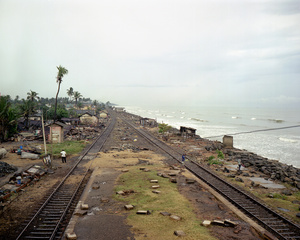
The coast and the railway in the afternoon of december 26, 2004 after the Tsunami hit Sri Lanka
Sri Lanka
The world's biggest rail disaster occurred when a train overflowing with passengers was destroyed on a coastal railway in Sri Lanka by the tsunami which followed the 2004 Indian Ocean Earthquake. Up to 2,000 people were killed, making it the world's worst railway accident.
The train was a regular service operating between Colombo, Sri Lanka, and the southernresort town of Galle. The route of the train runs along the coast of Sri Lanka, and at Telwatta the line is about 200 metres inland. It has been described as Sri Lanka's most popular tourist train, and on Sunday, December 26, 2004, during both the Christmas holiday weekend and a Buddhist full moon holiday, it was particularly full when it left Colombo shortly after 7.30 a.m. with around 1,500 passengers on board.
Suddenly, at 9.30 a.m., in the village of Peraliya near Telwatta, the beach was hit by the first of the huge waves thrown up by the earthquake which had occurred off the coast of Indonesia shortly before. The train came to a halt as water surged around it and hundreds of local people, believing the train to be secure on the rails, climbed on top of the train to avoid being swept away. Others stood behind it, hoping the train would take the force of the wave. The wave caused flooding in the carriages and began to cause panic amongst the passengers, but the next wave, by far the biggest of the day at over six metres high, picked the train up and smashed it against the trees and houses which lined the track, crushing those seeking shelter behind it. The eight carriages were so packed with people that the doors could not be opened, and they filled with water, drowning almost everyone inside, as the water washed over the wreckage several more times.
On December 26, 2004, 225,000 people were killed in eleven countries.

The coast and the railway in the afternoon of december 26, 2004 after the Tsunami hit Sri Lanka
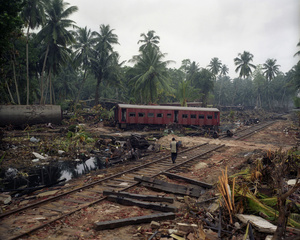
The train swept by the waves at Telwatta
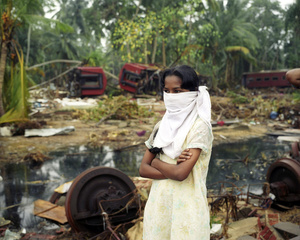
Survivor in Peraliya after the tsunami hit the coast of Sri Lanka
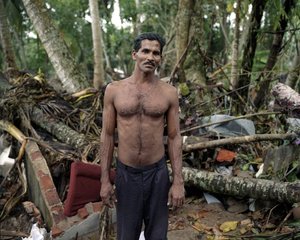
Survivor in Peraliya on his house’s ruins after the tsunami hit the coast of Sri Lanka
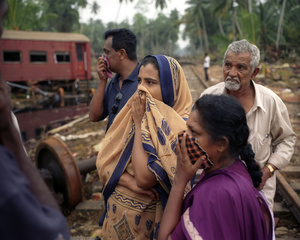
Survivors in Peraliya after the tsunami hit the coast of Sri Lanka
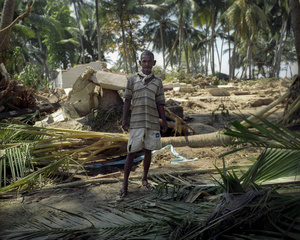
Survivor in Peraliya on his house’s ruins after the tsunami hit the coast of Sri Lanka
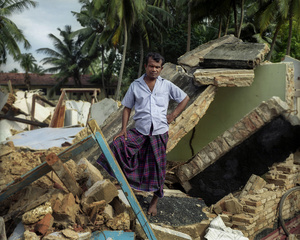
Sur Survivor in Peraliya on his house’s ruins after the tsunami hit the coast of Sri Lanka
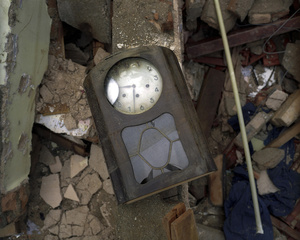
Ruins in Peraliya after the tsunami hit the coast of Sri Lanka
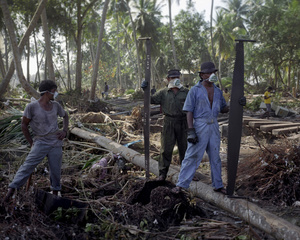
Rescue team in Telwatta looking for possible survivors stuck under fallen trees
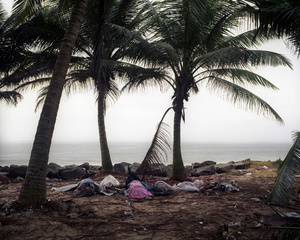
Victims in Peraliya after the tsunami hit the coast of Sri Lanka
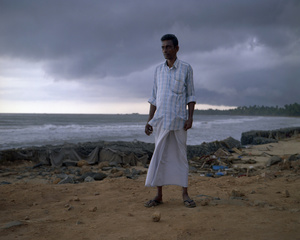
Survivor in Galle fearing replicas after the tsunami hit the coast of Sri Lanka
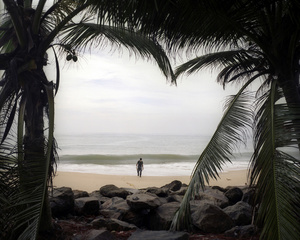
Soldier, part of the rescue team in Telwatta
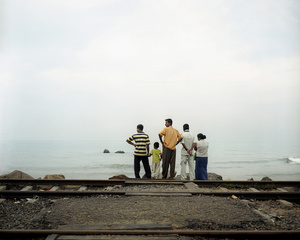
Family facing the sea a couple of days after the tsunami hit the coast of Sri Lanka